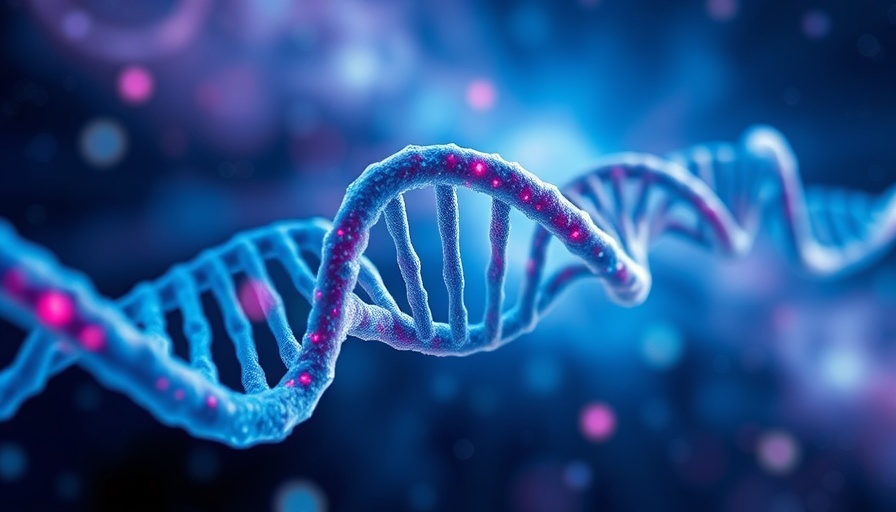
Unpacking the Genetic Puzzle of Human Evolution
The journey of human evolution is nothing short of fascinating. Recent research has uncovered critical insights into how genetic variations have shaped our dietary habits and physiological traits, setting modern humans apart from non-human primates. A significant genetic variant known as rs34590044-A has been identified as a key player in promoting greater height and higher metabolic rates in humans. This variant shows its most profound effects in individuals with meat-centric diets, marking a pivotal moment in our evolutionary timeline.
The Evolutionary Impact of Dietary Changes
Shifts in diet, especially the transition from plant-based to meat-inclusive nutrition, hold critical importance in understanding human growth and health. Co-authors Jin Li and He Huang from Fudan University emphasized that our modern stature and metabolism are intertwined with these historical dietary transformations. The genes that govern these traits play a crucial role in how our bodies process food and utilize these nutrients efficiently.
A Closer Look at ACSF3 and Its Functionality
Among the 6,000 potential genetic variants studied, the ACSF3 variant emerged as particularly noteworthy. In anatomy, this gene aids in metabolic processes that could promote bone growth and height. The variable expression of ACSF3 in the liver of humans compared to our primate cousins suggests that this gene has been capturing enhancements that respond to dietary sources of energy, potentially leading to taller statures and effective energy metabolism.
Insights from Modern Studies and Animal Models
To understand the functioning of the ACSF3 variant better, researchers conducted functional analyses using both cellular and mouse models. They observed that overexpression of the ACSF3 variant, when coupled with a protein-rich diet, led to increases in body size and metabolic rates in mice. This finding reinforces the idea that genetic predispositions can significantly influence health outcomes based on dietary patterns.
Global Health and Wellness Implications
This research not only sheds light on our evolutionary history but also imparts valuable lessons for modern health and wellness practices. Recognizing the relationship between genetics, diet, and health can help communities devise nutrition-based health frameworks, promoting elements of wellness tailored to genetic backgrounds. Taking a closer look at the implications of our evolutionary past may help us cultivate health practices that enhance vitality, energy, and health at all life stages.
The Future of Nutritional Science: Integrating Genetics and Diet
The unraveling of the genetic underpinnings of height and metabolism brings us closer to understanding personalized nutrition. By incorporating insights from our genetic background into dietary recommendations, it becomes possible to create tailored nutrition plans aimed at both suppressing common ailments and enhancing overall well-being. This scientific approach could particularly benefit communities interested in health and wellness, paving the way for innovative nutritional solutions and supplement development.
Act Now for Your Health and Wellness
Understanding the connection between genetics and diet not only enriches our knowledge of human evolution but also opens the door to healthier living. By exploring products and practices linked to health and wellness, you can take proactive steps toward enhancing your vitality and overall well-being. Engage with health and wellness events and resources in your community to discover further insights and keep abreast of evolving trends in nutrition.
 Add Row
Add Row  Add
Add 




 Add Row
Add Row  Add
Add 


Write A Comment